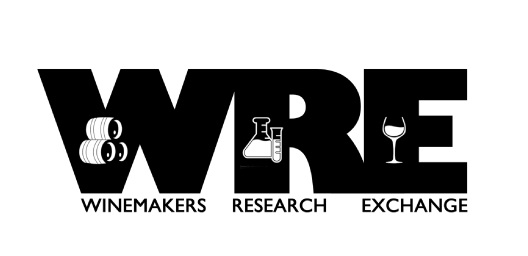
All WRE experiments begin with an idea, question, or concern and may be initiated by a winemaker, product representative, or academic collaborator. WRE studies are first and foremost practical, with the potential to yield results that can be applied to challenges encountered in real world working conditions with specific relevance to Virginia fruit. Studies also need a motivated experimenter (or two or three) who will be faithful to carry out the protocol even when things get busy during harvest.
Once an idea has been sparked, a good experimental design is needed to test the idea. The WRE Research Coordinator works with each experimental winemaker to refine his/her idea into a testable question. Together, they make a practical plan for how to set things up in the winery. Good experimental design includes identifying confounding variables and making a plan to control them to allow for good comparisons. Appropriate laboratory analyses are identified for each research question and a budget is prepared. The WRE Board reviews all protocols each year to provide insights and suggestions based on their years of experience as well as ensuring each project meets the set criteria for funding.
As winemakers, the most important outcome of any experiment is whether a given technique, product or piece of equipment improves wine quality. Quality improvement can be measured with both chemical and sensory analysis. WRE experiments receive quantitative laboratory analysis using several certified service laboratories. Most WRE projects are also evaluated using blind sensory analysis of the resulting wines at group sensory sessions.
At a WRE sensory session, winemakers act as a sensory panel, first tasting the experimental wines blind in numerically coded glasses. Testing usually includes determination if the wines are different (using a triangle test) as well as scoring for specific descriptors that might be relevant to the experiment. Data from these tests are compiled and allow statistical analysis for sensory differences.
After the wines have been scored blind, the identity of each wine is revealed and the experiment is explained. Winemakers then participate in open ended discussion of the experiment and provide feedback. This approach allows both quantitative and qualitative evaluation of wines so each winemaker can decide for themselves if they want to adopt the tested approach.
Results from all WRE experiments are compiled into written reports and posted for reference. The Library section of this website contains all previous reports searchable by topic and keyword. If several experimenters have worked on similar topics, these are grouped as collections, which can be found in the Learn section of the site. Collections include background information to understand the research question more deeply as well as a listing of each of the experiments done on the topic.
Participation in the WRE sensory sessions and support for experimentation is open to all commercial wine producers in Virginia free of charge through a grant from the Virginia Wine Board. The research coordinator is also available for general enology inquiries under this grant.
If you are not a Virginia wine producer, you are still welcome to use any of the website resources and join our email list to receive educational materials and links to past sensory sessions. If you would like to know more about the WRE, would like to attend sensory sessions, or if you have an idea for an experiment, please contact WRE Research Enologist, Joy Ting at vawrex@gmailcom.